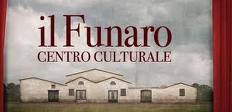On Saturday and Sunday the 26th and 27th of March The F.A.I (Fondo Ambiente Italiano) organizes visits to the Italian historic artistic heritage that have been rescued from ruin and neglect. Among the several spots in Tuscany a real curiosity is represented, directly north of Lucca, by Vetriano, an out-of-the way hamlet, in the Middle Serchio Valley, far from the madding crowd. Here the pint-sized theatre brings back the memories of an agricultural community who preferred tearjerking drama to the folkstales in front of fireplaces . It sprang up in 1889 when the villagers accepted the offer of Vetriano’s bigwig Mr Virgilio Biagini. He offered them a small hayloft to be specifically used as a theatre. The restoration was to be started within two months. A poor theatrical association started directly financing their shared dream with all their heart and soul. Hectic days followed. The whole village rallied around, busy at the two tiers of wooden painted balconies , the 6 metre wide hand-painted panels working as curtains between the acts. The inhabitants’ participation was total, ranging from the seating brought from home to the stage props and acting itself. Their efforts lead to the final birth of the “Teatrino” as they affectionately used to call it. For 70 years it honourably accomplished its task until the roof started to leek, the walls to crack, the paintwork to peel. The new difficult times were coming: the original association members headed elsewhere, often to foreign lands, for a brighter future and the alluring television was starting to woo the few residents. The theatre doors closed. The decay changed it into a storage depot until 1997 when the F.A.I. brought it a new life, through a loving and faithful restoration. Vetriano’s playhouse is now enjoying a new start. A new promising life for this 60seat” bomboniera” – as somebody defines it- .The concerts, the modern and old plays staged here bring us back the flavour of the “old good days “ pleasantly linking past and present.
A spring date not to be missed.
For accommodations in Lucca, we recommend our www.tuscanyholidayrent.com with a wide selection of apartments or farmhouses in the countryside.
In particular the Tuscan charme at our accommodation in lucca.




















